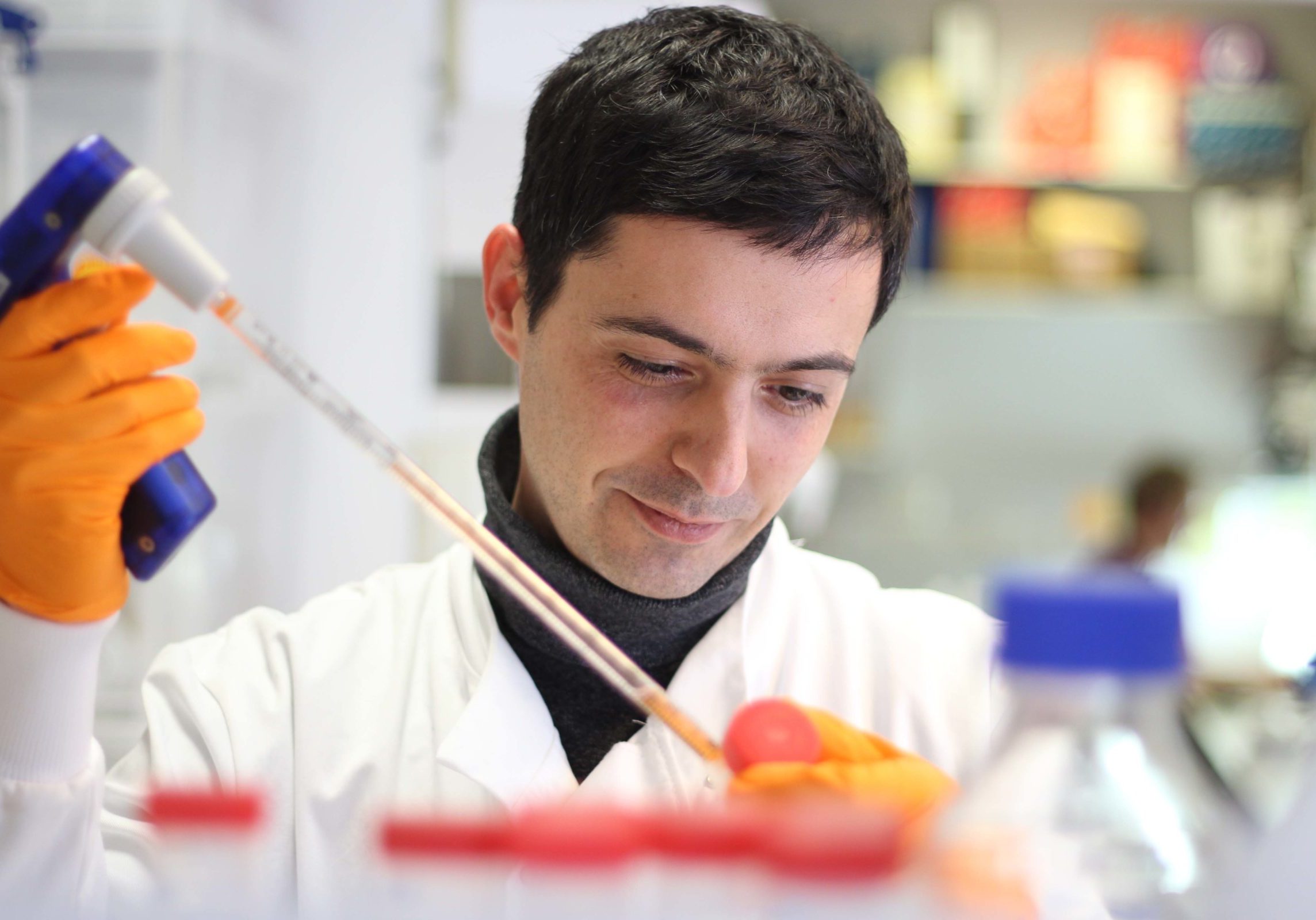Modulation of the immune tumour micro-environment by combinations of radiotherapy and DNA damage response-targeted drugs

Project type:
Post-doctoral Project
Project Leader:
Prof Kevin Harrington
Researcher:
Dr Emmanuel Patin (pictured left)
Commencement date:
January 2021
Length of project:
2 years
Funding provided:
£178,644
Funder:
DPS Limited
Location:
The Institute of Cancer Research
Head and neck cancer is a disease that is very frequently treated by radiotherapy with curative intent. Unfortunately, in many patients it fails to achieve durable tumour control and, in those in whom it is successful, there are often long-term severe side effects. In this research, we aim to use drugs to make radiation more effective in killing cancer cells, but also to alert the immune system to their presence.
In this way, clinicians aim to make radiation work better against hard-to-treat head and neck cancers (eg HPV-negative tumours), but also to reduce the side effects of treatment by needing to use less radiation dose to control more sensitive cancers (eg HPV-positive tumours).
There are clear rationales to test novel DNA damage response inhibitors with radiation in head and neck cancer: (i) as a means of escalating the biological effects of radiation on tumour tissue in order to kill cancer cells; (ii) as a means of increasing the visibility of dying cancer cells to the immune system; (iii) as a means of reducing the total dose of radiation delivered to normal tissues (while maintaining or increasing the effective dose given to tumour tissues). In all these aspects, there is great scope to translate laboratory findings to clinical trials of radiation, DNA damage response inhibitors and immunotherapy drugs.
In this research, the aim is to use drugs to make radiation more effective in killing cancer cells, but also to alert the immune system to their presence. In this way, the study aims to make radiation work better against hard-to-treat head and neck cancers (eg HPV-negative tumours), but also to reduce the side effects of treatment by needing to use less radiation dose to control more sensitive cancers (eg HPV-positive tumours).
The team aim to understand the effect of different doses and schedules of radiation delivery on the immune effects of treatment. We will also study how adding so-called “radiosensitising drugs” can enhance the ability of the immune system to “see” the tumour and attack it.
The results we obtain will inform the design of future clinical trials of radiation, radiosensitising drugs and immunotherapy – both here in the UK and through the wider global community.

Help fund this project
For more information on funding our Research Projects please email us
Donate now and together we can save more lives by beating cancer sooner.


